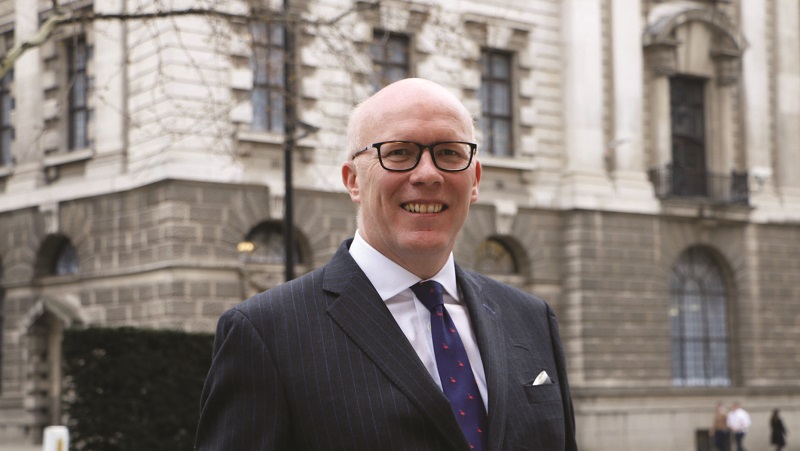So far, 2022 is set to record fewer fund launches in the UK than in recent years. There were 158 funds brought to market in 2020, but this number retreated slightly in 2021 to 151, according to Morningstar data. As of July 2022, only 71 have been launched so far this year.
Of those rolled out over the last three years, only four have not survived. Active management has continued to dominate with 144 of the 158 funds launched in 2020 falling into this category. The trend was similar in 2021, with 145 active launches.
“Flows in 2022 have been poor and May and June saw significant outflows,” says Morningstar manager research analyst Bhavik Parekh. “This would suggest launching a new fund or range with the intent of growing AUM organically, at the moment, would be difficult.”
Given current economic uncertainty, it’s no surprise that fewer fund launches are being registered – especially as investors continue to pull money from established strategies. Steve Kenny (pictured), chief distribution officer at Square Mile Investment Consulting and Research, says asset managers will also be wary that rough market conditions will take the shine off of new products.
“A key factor influencing the decision to bring a new strategy to market is the potential for it to get off to a good start,” says Kenny. “For this reason, launching into a turbulent market tends not to be a good idea for fear of harnessing the fund with a poor start from which it proves difficult to recover on the performance screens operated by clients.”
Sustainable products/unsustainable demand
This is just one consideration for asset managers when launching new products. Client demand has always influenced product development strategies and, since 2020, this has led more firms to increasingly focus on ESG or sustainable funds.
Even this trend is coming under greater scrutiny with Copia Capital head of investments Joanne Benson remarking interest has “waned” in the past year.
“Arguably, this should be a short-term headwind and we would expect longer-term demand to continue,” she says, “although it could challenge any new ESG fund launches and may lead to a rationalisation of funds that are currently sub-scale.”
Benson is not alone in this view, with Momentum Global Investment Management business development head Steve Hunter seeing similar signs of an ESG launch slowdown.
But with so many products being launched in such a relatively short amount of time, he says this is more of a natural sign of asset managers adapting.
Ed Hamilton-Russell, Link Fund Solutions’ business development head (EMEA), adds: “The number of new launches may be ‘stalling’ simply because managers have to ensure that their existing funds adapt to and adopt ESG measures in order to stay relevant to their existing investors – so attention is being focused on implementing and evidencing ESG credentials of existing funds rather than launching a new ESG-branded range.”
A move for alternatives
The appeal of alternative and private asset investments is on the rise. Not only do these asset classes provide valuable diversification benefits, but they can also potentially offer investors protection against inflation.
“Investors are attracted to the risk/return profile that private assets – including real estate, infrastructure and private credit – have generated,” says Benson. “Many of these strategies should provide a level of inflation protection based on the assets they hold and/or inflation-linked covenants.”
The trend is not confined to the UK. With inflationary pressures being felt around the world, such strategies are also being increasingly launched out of Ireland and Luxembourg. Hamilton-Russell has watched this happen first-hand, as market conditions have seen traditional assets fall out of favour.
Additionally, he has seen policymakers support this trend: “Regulation is becoming more conducive to such alternative strategies being marketed more widely, with new fund structures like the LTAF (in the UK) and Eltif (in Luxembourg and Ireland) coming to market, which makes them more attractive to fund managers and potentially to a wider investor base.”
Going to market
In spite of the widespread concerns about the economy, that 71 funds have been launched so far in 2022 is evidence that many in the industry are still confident about bringing new products to market. Hunter says: “Launching funds has never been overly difficult, although increased regulation has lengthened the process somewhat.
“However, gaining asset flows is the hard part and can only be achieved when you play to your strengths and expertise rather than becoming a ‘me too’ manager.”
Getting funds to scale has always been a challenge for firms. Many fund pickers will only consider a fund once it reaches a certain size which can be difficult for new funds, creating a catch-22 scenario for asset managers. This has made seed capital important, but even this is hard to come by in 2022, according to Square Mile’s Kenny.
“There needs to be enough seed capital to build a diverse portfolio, enabling a fund’s costs to be as competitive as possible,” he says. “A fund has a number of fixed costs which, if it is small, will form a higher proportion of the variable costs. The current focus on charges by the adviser market means that these need to be managed or subsidised by the fund group so as not to deter advisers and fund selectors.”










